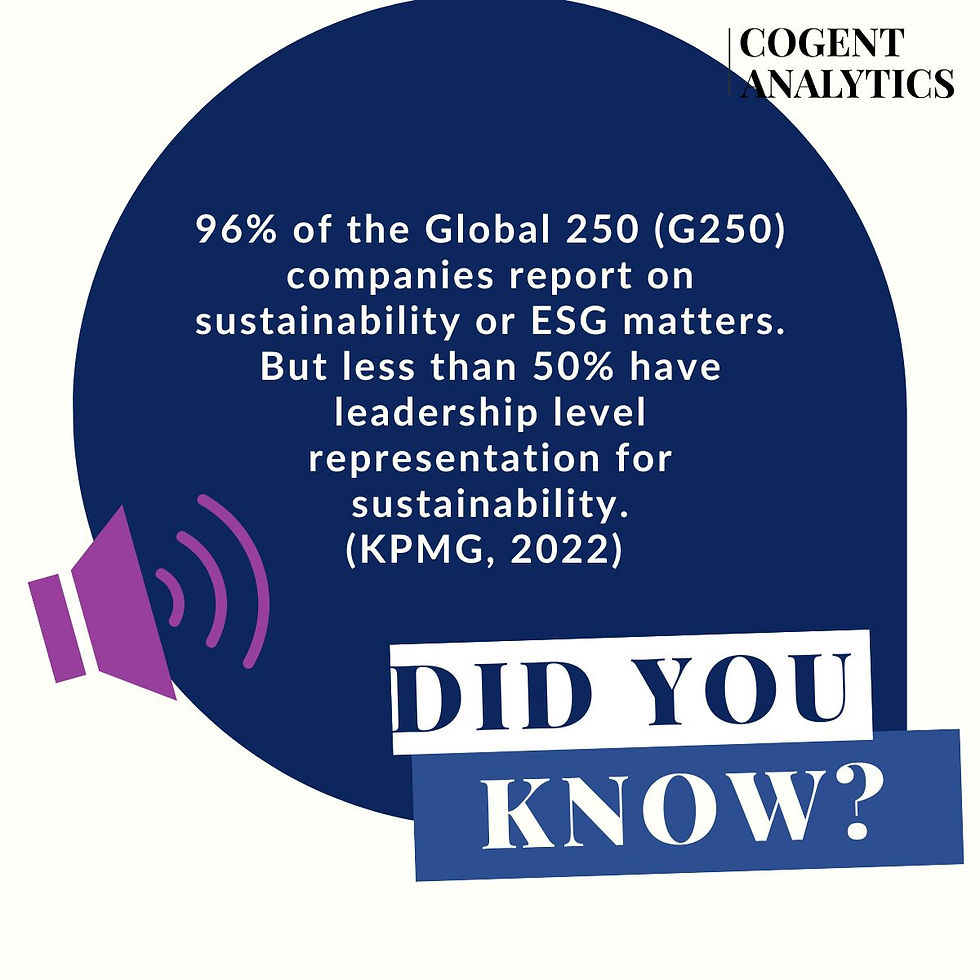The Urgent Need for ESG Governance in Venture Capital-Backed Start-Ups
- Mimi Ajibadé PhD FCG

- Oct 3, 2023
- 2 min read
Updated: Oct 10, 2023
The recent findings by TechCrunch revealing that three-quarters of the UK's top 500 venture capital-backed start-ups have not addressed their carbon emissions are undoubtedly concerning even thought they've together raised £40m. It's a stark reminder that sustainability often takes a backseat, even in the rapidly growing world of venture capital-funded businesses. However, as a sustainability and ESG governance professional, I'm not entirely surprised by this lack of focus on sustainability. The reason is simple: without a strong foundation of corporate governance, true sustainability remains an elusive goal. This is the paradox that businesses, particularly start-ups, find themselves navigating.

The source of this problem can be traced back to the venture capital landscape, which historically hasn't prioritised ESG (Environmental, Social, and Governance) factors, especially at the seed and early funding stages. I vividly recall several instances where venture capitalists advised that their investments were not mature enough to warrant governance or sustainability oversight. In many cases, the onus falls on the founders to either have a genuine interest in sustainability and governance or the capacity to embrace these principles.
However, the rapid growth trajectory of start-ups often leaves little time for governance post-funding. The focus tends to be on scaling and achieving quick wins, with sustainability sometimes perceived as a luxury rather than a necessity.
A fundamental question emerges: when should venture capitalists begin requiring governance and sustainability measures from their investees?
This question needs careful consideration, and we hope that the British Private Equity & Venture Capital Association (BVCA) will provide some much-needed guidance, particularly for smaller investments. Investee companies of their members can contact them for support.
It's encouraging to note that the U.S.-based B Labs (B-Corporation) initiative/movement is gradually gaining a foothold in the UK through B Corp UK. This movement holds promise for promoting sustainable and socially responsible business practices among start-ups. However, the challenge lies in how effectively it can adapt to the evolving landscape of sustainability regulations and whether paid memberships like B-corp will continue to be relevant. Time will tell.
Today, it's not only about the solutions and impacts that businesses create but also about the process by which these achievements are realised. Governance matters, and it is the linchpin that holds sustainability and corporate responsibility together.
Michelle You, CEO of Supercritical, who aptly told TechCrunch, "We think our community has a responsibility to act and show the world what climate leadership looks like."
As we move forward, it's essential for venture capitalists, founders, and the broader business community to recognise that ESG principles are not just a checkbox exercise but a fundamental part of building resilient, forward-thinking organisations that can thrive in an era where sustainability isn't just an option but a necessity. To foster real climate leadership, we must embrace governance and sustainability as integral components of our business strategies, from inception to success.
%20white%20transparent.png)


Comments